29 Oct 2014 | Europe and Central Asia, News and features, Serbia
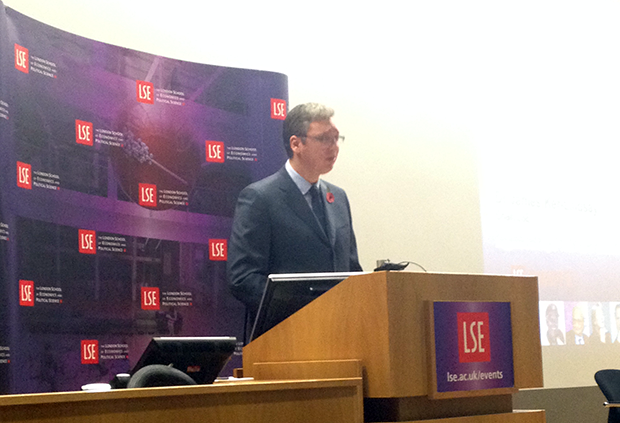
Serbian Prime Minister Aleksandar Vucic speaking at LSE (Photo: Milana Knezevic)
It wasn’t quite a remote controlled drone carrying a provocative political message, but Serbian Prime Minister Aleksandar Vucic’s Monday night lecture at the London School of Economics (LSE) came with its own controversial incident.
“What can you say about the total censorship of all opposition media”, Vucic was asked by a young woman in the audience just as the premier sat down for the question and answer portion of the event. She explained that she was representing Nikola Sandulovic, an opposition politician from the Serbian Republican Party, who was sitting beside her. Sandulovic said later he had travelled to London to confront Vucic.
Chaos ensued. Sandulovic claimed, among other things, that a police officer connected to Vucic had threatened to kill him and that he had evidence contained on a CD he held aloft. Vucic hit back that the Republican Party had only 0.01% of public support, and disputed Sandulovic’s assertion that he had been an adviser to former Serbian Prime Minister Zoran Djindjic, who was assassinated in 2003. Accusations flew across the room until LSE’s moderator James Ker-Lindsay finally managed regain control of the situation.
After the event, Sandulovic told Index he came to London because the media in Serbia ignore him and his party, apart from when government-friendly outlets attack him.
That press freedom was a popular topic on the night did not comes as a surprise. Serbia has seen a string of censorship incidents during Vucic’s time in power, as Index and many others have reported.
The prime minister himself brought up the press in his introductory lecture. He explained how his government has passed several new laws aimed at improving the media landscape, and complained that despite this, they are “scapegoated”. He directly addressed the recent controversial cancellation of a political talk show, Utisak Nedelje (Impressions of the Week), saying authorities have been subjected to a blame campaign for what was a commercial decision. Supporters of the show, including host Olja Beckovic, say it was down to political pressure.
In a joking reference to his infamous role under Slobodan Milosevic, he said he had been the “worst minister of information”. Curiously, he also used this former job as a counterargument to critics, arguing that his past had made it easy to blame him for any instance of censorship.
But this didn’t seem to stop the press-related questions, though none of the journalists present were chosen to ask one. Apart from the memorable Sandulovic intervention, an audience-member pointed out that Utisak Nedelje wasn’t the only show to have been taken off air in recent times.
If there was an overarching theme to the night, it was that it seemed to showcase different — some would say conflicting — sides of Vucic and his administration. He reminded the audience that Belgrade had recently organised a successful Pride parade, before adding that he didn’t want to attend. To have that choice, he argued, was a real mark of freedom.
There were, of course, questions about the football drone. While Vucic said he didn’t want to share his own views, he said UEFA (European football’s governing body) saw Serbia’s side of the story by awarding them the win, before pointing out that Serbia carries its share of the responsibility. The planned state visit from Albanian Prime Minister Edi Rama — the first in 68 years — will go ahead, he also confirmed, despite the post-drone postponement.
In response to questions about relations with Russia — just weeks after the Belgrade military parade where Vladimir Putin was the guest of honour — he said the two countries would continue to build their relationship, but that this would have no impact on Serbia’s ultimate goal of European Union accession.
Much has been made of Vucic’s apparent journey from Milosevic man to EU enthusiast. He seemed to reference this as he said he is “not perfect” and that he works “every single day” to change and better himself. But on Monday, he left more questions than answers about the direction he is taking Serbia in.
Mapping Media Violations in Europe: Serbia
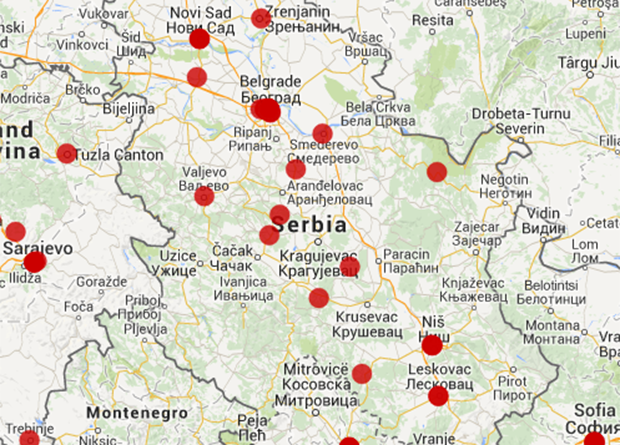
Five media outlets targeted with DDoS attacks
Protesters criticise cancellation of political talk shows
Deputy mayor fined for insulting journalist
Macedonian journalist released from extradition detention
Photographer injured by anti-pride parade protesters
This article was originally posted on 29 October at indexoncensorship.org
29 Oct 2014 | Azerbaijan, Azerbaijan News, News and features
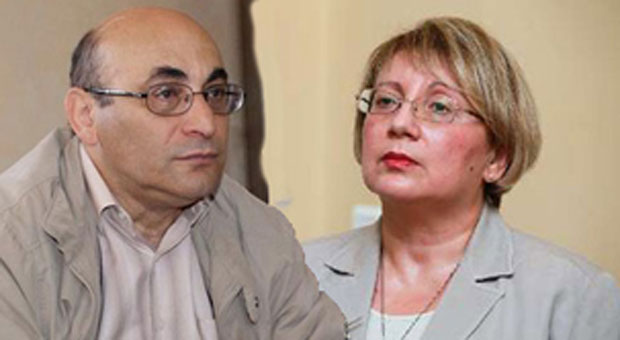
Arif and Leyla Yunus (Photo: HRHN)
A journalist from Azerbaijani opposition newspaper Azadliq was today sentenced to 25 days of administrative detention. Khalid Garayev, who also hosts online show Azerbaijani Hour, was found guilty of hooliganism and insubordination to the police by a court in the capital Baku. He told the court the case against him is “fabricated, and politically motivated” because of his “journalistic activities and active civil position” reports contact.az.
Also today, jailed human rights activist Leyla Yunus said she has been denied access to her lawyer. Yunus made the claim in a letter sent from the detention centre in Baku where she is being held. This comes a day after her husband Arif Yunus, who was arrested with her in July, had his pretrial detention extended until 5 March, 2015. Azerbaijani authorities also announced yesterday that police will be able to use electric shockers, following an amendment to the police law.
Leyla Yunus’ lawyers have previously reported being denied access to her cell or an opportunity to see her. She has also reportedly been beaten and denied medical attention. The lawyers say the conditions she is being exposed to in prison “raise a lot of concerns”.
In addition to the Yunus couple, rights activist Rasul Jafarov, lawyer Intigam Aliyev and journalist Seymur Hezi have been detained since late this summer.
Last week, the European Union praised an announcement from President Ilham Aliyev that 80 prisoners, including at least four activists, would be granted amnesty. This was “a positive first step in reversing the trend of recent months,” said the EU in a statement.
Previously, the European Parliament has called on Azerbaijan to release political prisoners, including Arif and Leyla Yunus. The parliament also called on the government to cease its harassment of civil society organisations, opposition politicians and independent journalists.
On 13 October, thousands protested in Baku, calling for the resignation of President Ilham Aliyev, the release of political prisoners and an end to human rights abuses in the country. Two days prior, a travel ban had been placed on journalist Khadija Ismayilova. She currently faces a lawsuit over libel and document forgery, accusations she denies. As Index has reported, government supporters have threatened Ismayilova in the past.
Fellow journalist Arzu Geybulla was threatened on social media and accused of treason following a recent interviewed with Azerbaijani news site Modern.az. In July, the Index award-winning newspaper Azadliq was forced to suspend publication due to financial pressure from authorities.
Nominations are now open for the Index Freedom of Expression Awards 2015. Put forward your free expression heroes here.
This article was posted on 29 October 2014 and updated on 30 October at indexoncensorship.org
28 Oct 2014 | Draw the Line, Europe and Central Asia, Events, United Kingdom
Index on Censorship held its latest Draw the Line workshop with the young associates of Ovalhouse theatre in south London. The young associates are the theatre’s steering group for the national Truth about Youth initiative, which aims to challenge and change negative perceptions about young people, by supporting projects which enable them to work with adults, the media and the wider community. The group individually explored different freedom of expression issues before examining this month’s question “Do laws restrict or protect free speech?” in more detail as a group.
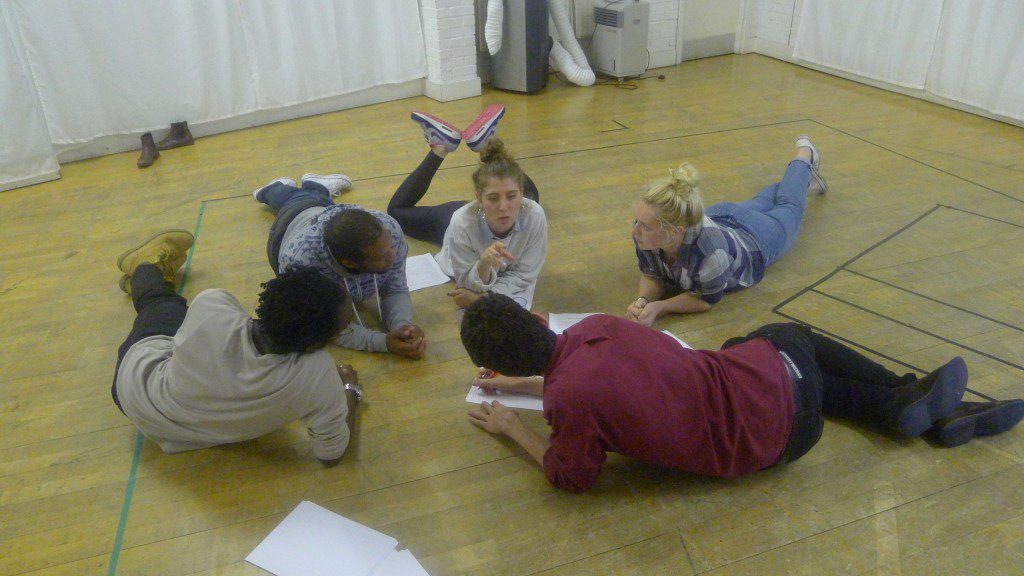
Young Associate Jordan Mitchell shares his experience of the workshop:
Going into the freedom of expression workshop, I had a couple of questions in mind; who defines freedom? Does freedom mean something different to each person? And how do we draw the line between free expression and infringing on another person’s freedom and sense of self? As a young associate, my colleagues and I are actively involved in the community, and one of the things we encourage and are encouraged to do ourselves is to appreciate different opinions, and respect that everyone has the right to that opinion.
The exercises were informative and engaging, particularly the “belief scale” (this involves being given a statement and having to answer how far you agree/disagree by positioning yourself on an invisible line across the room with either end representing “agree” or “disagree”). Often the questions posed to us led to a spread across the scale, which showed how varied opinions can be, even in a group containing people with similar interests. The great thing about it was that the reasoning put forward by people was incisive, and even if my view didn’t change, I understood and accepted that point of view.
One thing was reaffirmed in my mind at the end. Freedom of expression is limited dependent on who you know. Influence plays a big part, and tying in with the work that we do as young associates, something has to be done to build more platforms for people to be heard.
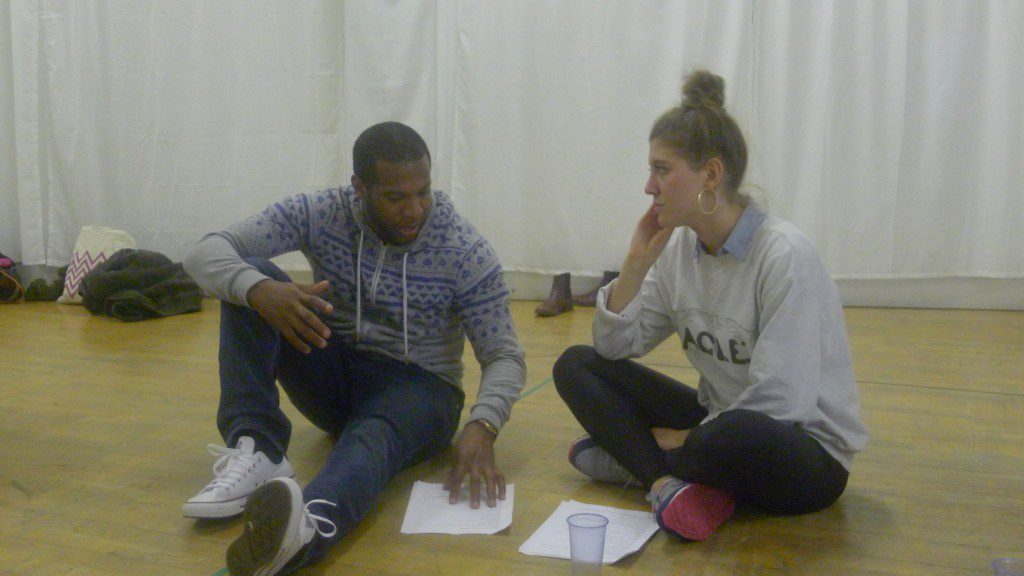
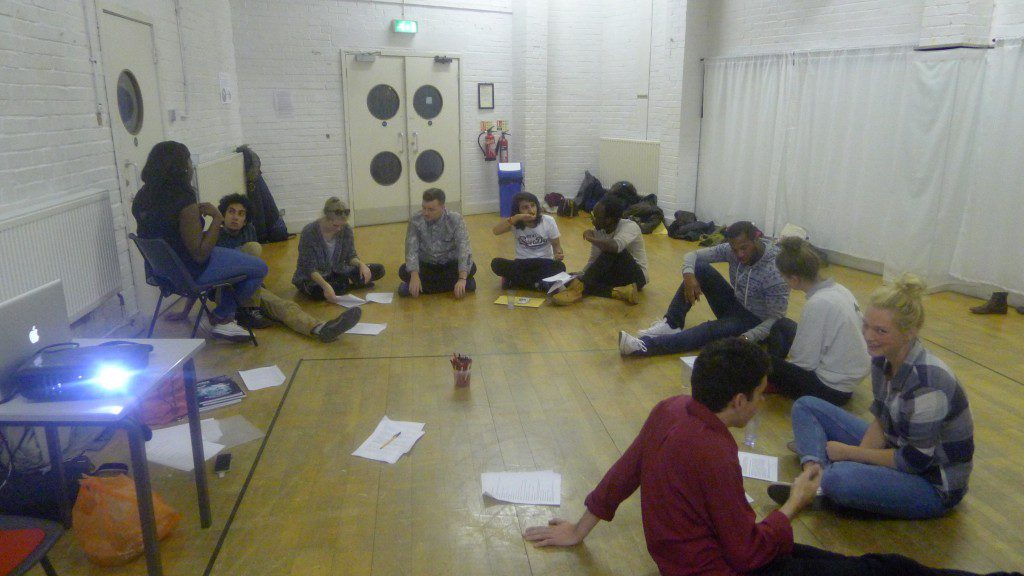
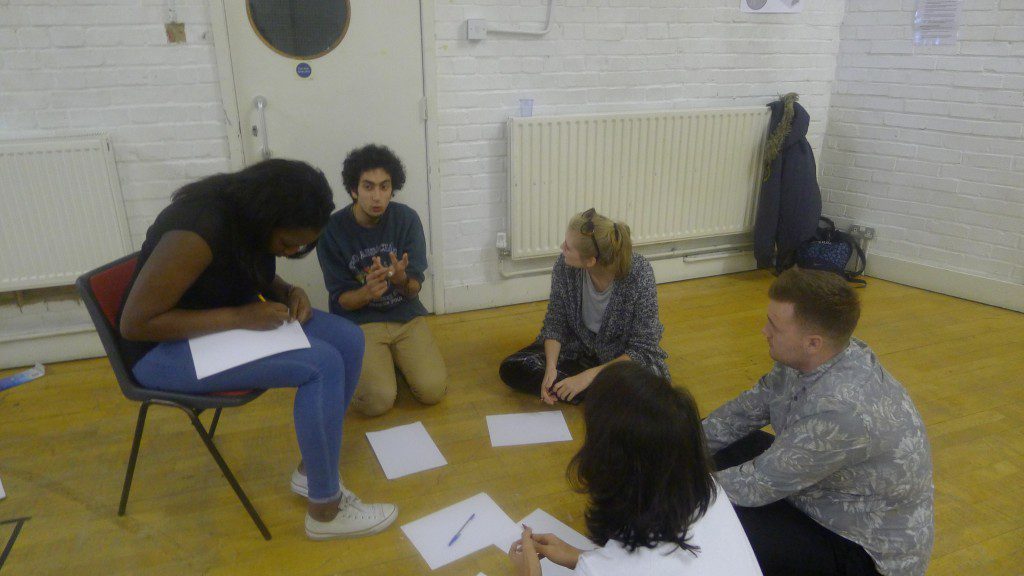
This article was originally posted on 28 October at indexoncensorship.org
28 Oct 2014 | Bahrain, News and features

Nabeel Rajab during a protest in London in September (Photo: Milana Knezevic)
President of the Bahrain Centre for Human Rights (BCHR) and director of the Gulf Centre for Human Rights (GCHR), Nabeel Rajab, is due to face trial on Sunday 2 November. Rajab was charged after he allegedly “denigrated government institutions” on Twitter, according to the Ministry of Interior.
Rajab was released from prison in May after serving a two years on charges which included making offensive tweets.
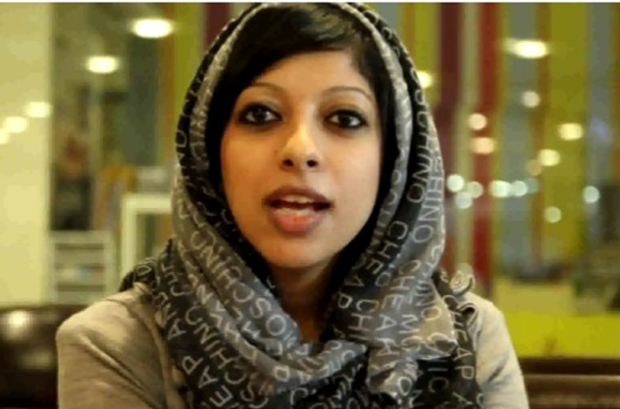
The trial against Zainab Al-Khawaja was delayed until December, her sister Maryam Al-Khawaja reported on Twitter on 30 Oct. The prominent human rights defender is currently eight months pregnant and could face up to seven years in prison. Al-Khawaja is the sister of Maryam Al-Khawaja, who held a press conference at Index earlier this month urging the UK government to speak out against human rights violations in Bahrain. Zainab Al-Khawaja faces charges of publicly insulting King Hamad bin Isa Al-Khalifa for ripping up a photo of him when she was recently in court over charges connected to previous rights campaigning. A verdict is expected on Thursday 30 October.
According to the 2012 Index advocacy award-winning BCHR, a total of 40 arbitrary arrests, including three children under the age of 18, were documented last week. Six individuals were released, leaving over 3000 prisoners still in arbitrary detention.
Nominations are now open for the Index Freedom of Expression Awards 2015. Put forward your free expression heroes here.
This article was originally posted on 28 October and updated on 30 October at indexoncensorship.org









